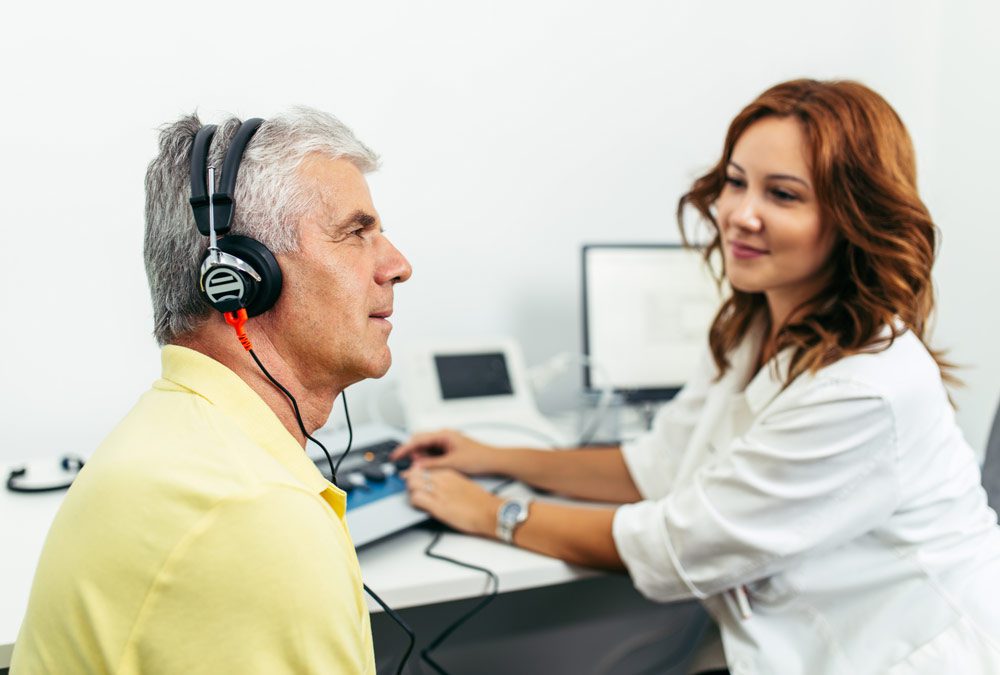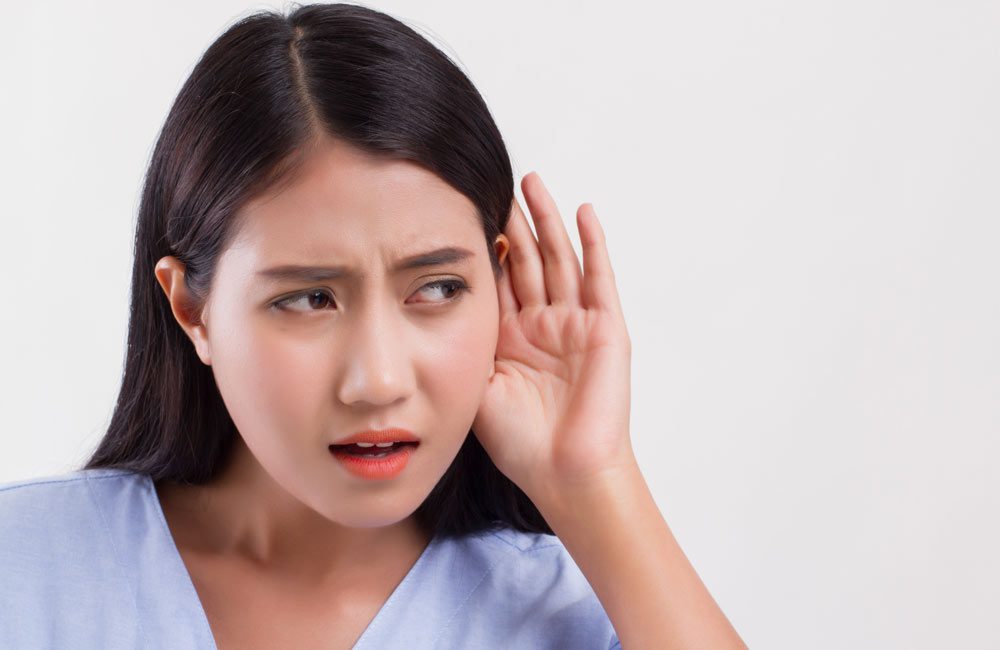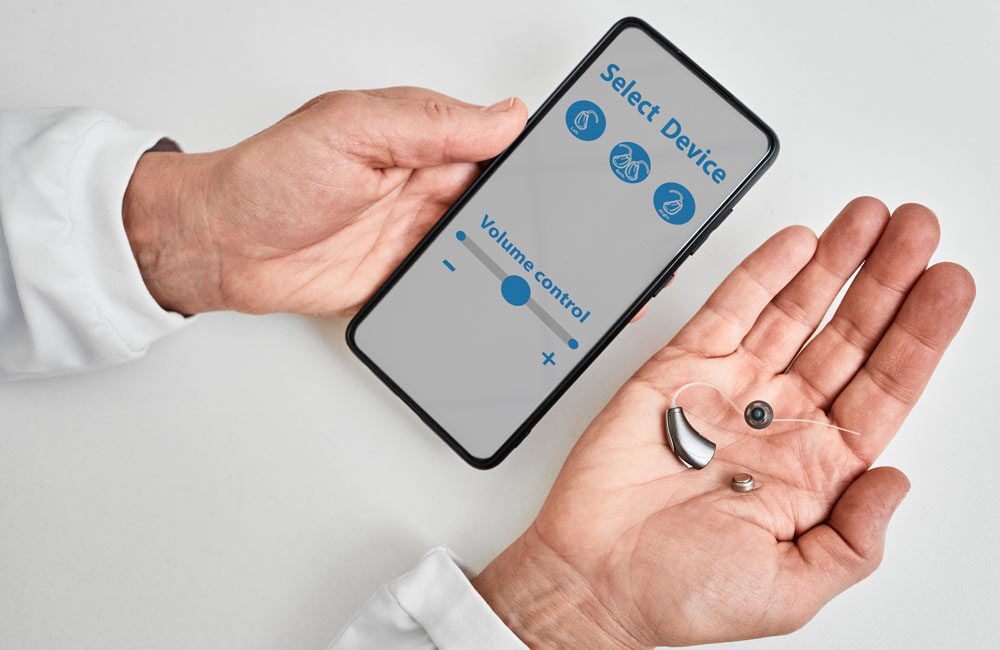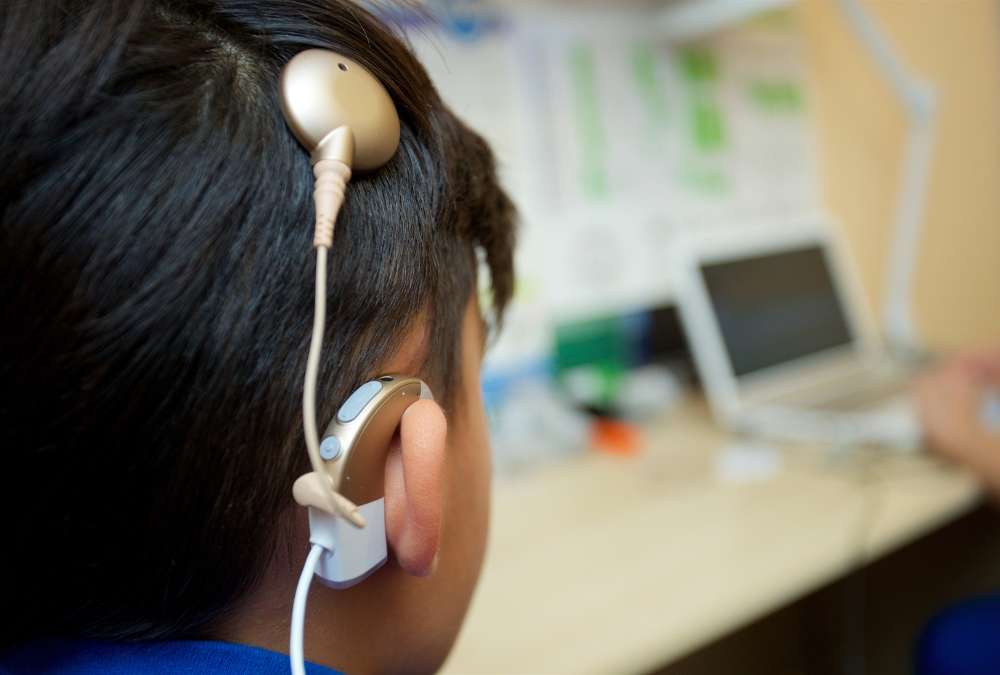Better Hearing Blog

What Should I Expect at an Audiology Appointment?
Never been to an Hearing Care Provider before? The prospect of your first appointment might seem a little daunting. However, the process is straightforward and focused on helping you achieve optimal hearing health. Here’s a guide on what to expect at your initial audiology appointment.
Scheduling the Appointment
Once you’ve decided to prioritize your hearing health, the first step is scheduling an appointment online with your trusted Hearing Care Provider. At The Better Hearing Center, we are dedicated to providing patient-centered care that addresses your hearing problems and help to prevent further issues.
New Patient Intake Form
Before your appointment, you’ll likely be asked to download and fill out a new patient intake form. This form collects essential information about your medical history, any hearing concerns you might have, and your lifestyle. This information is crucial for the Hearing Care Provider to understand your unique needs and tailor their approach accordingly.
Warm Welcome and Preliminary Discussion
Upon arriving at the Better Hearing Center, you’ll receive a warm welcome from our staff. We understand this might be a new experience for you, and we’ll make every effort to ensure you feel comfortable. You’ll have an opportunity to discuss your immediate concerns or questions.
Comprehensive Hearing Evaluation
The heart of your audiology appointment is the comprehensive hearing evaluation. This series of tests is designed to assess the status of your hearing. The Hearing Care Provider will likely use a variety of methods, including pure-tone audiometry, speech audiometry, and potentially other advanced assessments. These tests will help determine the extent of your hearing loss, if any, and its specific characteristics.
Personalized Treatment Options
Once the evaluation is complete, the Hearing Care Provider will discuss the results with you. They will explain the findings in a clear and understandable manner. If hearing loss is detected, we will go over the degree of loss, the potential causes, and how it might impact your daily life. The Hearing Care Provider will then present personalized treatment options. This might include recommendations for hearing aids, cochlear implants, assistive listening devices, or other interventions.
Ongoing Customer Service
At the Better Hearing Center, the relationship doesn’t end after your appointment. Every hearing device you purchase comes with a high level of ongoing customer service at no extra charge. This ensures that your chosen device continues to meet your expectations over time.
Book an Appointment Today
Your first audiology appointment at the Better Hearing Center is designed to be a supportive and informative experience. Our patient-centered approach and personalized treatment options are designed for your better hearing health. Schedule your appointment and take the important step towards reconnecting with life through improved hearing.

Am I Hard of Hearing or Am I Losing My Hearing?
In audiology, the terms “hard of hearing” and “hearing loss” are often used interchangeably, yet they encompass distinct aspects of auditory health. It’s important to recognize the differences between these terms to comprehend your auditory experiences better and seek appropriate solutions.
Hard of Hearing
Being “hard of hearing” generally refers to a mild to moderate reduction in auditory sensitivity. If you are hard of hearing, you may experience difficulty discerning certain sounds, particularly in noisy environments or when conversing with soft-spoken individuals. While you may benefit from hearing aids or other amplification devices, your overall communication abilities remain relatively intact.
Hearing Loss
On the other hand, “hearing loss” is a broader term that encompasses a wider range of auditory impairments. It refers to a diminished ability to perceive sounds across various frequencies and intensities. Hearing loss can range from mild to profound, often impacting an individual’s ability to communicate effectively and engage with their surroundings. It often necessitates the use of hearing aids to facilitate communication and maintain a good quality of life.
Key Differences
Severity of Impairment
The primary distinction between being hard of hearing and experiencing hearing loss lies in the severity of auditory impairment. Hard of hearing individuals have a relatively minor reduction in hearing ability, while hearing loss can manifest as a more significant and encompassing deficit.
Communication Challenges
If you are hard of hearing, you may encounter occasional challenges in communication, especially in specific situations. In contrast, if you have hearing loss, you will face consistent difficulties in understanding speech, following conversations, and perceiving environmental sounds.
Treatment and Intervention
Both hard of hearing and hearing loss individuals may benefit from hearing aids, but the extent of intervention often varies. Hard of hearing individuals might rely on hearing aids primarily in certain scenarios, while those with hearing loss typically require consistent device usage to enhance their overall hearing ability.
Impact on Lifestyle
While being hard of hearing might have a relatively modest impact on one’s lifestyle, hearing loss can influence various aspects of daily life. Hearing loss can lead to social isolation and depression, affect personal relationships, and hinder professional pursuits. This underscores the significance of early intervention and effective management of hearing loss problems.
Seek Help for Your Hearing Issue
Hard of hearing and hearing loss represent distinct degrees of auditory impairment, each requiring a tailored approach to intervention and support. Whatever category you fall into, the journey toward improved auditory health begins with consulting a professional. Contact us or book an appointment with an audiologist to help you resolve your hearing issue.

Are There Smartphones Compatible With My Hearing Aid?
Staying connected is paramount, and technology has paved the way for improved communication for those with hearing difficulties. One such advancement is the compatibility between hearing aids and smartphones. This groundbreaking integration has brought about a positive shift in the lives of individuals seeking clearer communication and enhanced connectivity.
Can Smartphones Be Compatible With Hearing Aids?
The answer is a resounding yes. Thanks to technological innovations, hearing aid manufacturers have recognized the importance of ensuring their devices can seamlessly interact with smartphones.
Many modern hearing aids are equipped with Bluetooth capabilities to establish a connection with smartphones effortlessly. In addition, the Federal Communications Commission (FCC) passed a requirement that all smartphones be Hearing Aid Compatible (HAC). Thus, you can be sure your smartphone is compatible with hearing aids.
Can They Be Connected To Hear Phone Calls?
Smartphones can be connected to hearing aids to facilitate phone calls. This connection is established through technologies like Bluetooth to allow seamless communication between the two devices.
One of the most beneficial aspects of this connection is the ability to stream audio directly from the smartphone to the hearing aids. This includes not only phone calls but also music, podcasts, audiobooks, and more. Such a feature enhances the listening experience, ensuring the user enjoys crisp and clear sound without external disturbances.
Although smartphones come with Hearing Aid Compatibility, considering their M rating is crucial when choosing a smartphone. This rating, graded on a scale of 1 to 4, indicates how well the smartphone can work with hearing aids without causing electromagnetic interference.
In addition, it is important to select a smartphone with a higher M rating, as it signifies better compatibility with hearing aids. A higher rating, closer to 4, suggests that the smartphone has been tested and approved for minimal electromagnetic interference, ensuring a clear and effective listening experience when using your hearing aid.
Get Help for Your Hearing Issue
Integrating smartphones with hearing aids is a significant leap forward in improving the quality of life for individuals with hearing difficulties. At Better Hearing Center, our wide range of hearing aid options compatible with smartphones will help you stay connected to the moments that matter. Contact us today to schedule a consultation and take the first step toward improved hearing and enhanced quality of life.

How Is Hearing Loss Related to Depression?
When an individual experiences hearing loss, basic communication can become exhausting and effortful. As the auditory connection starts to fade due to hearing loss, it can have unexpected and far-reaching consequences on one’s emotional well-being. This may show off in the form of withdrawal from public participation to avoid the struggle of improper communication. Over time, the emotional strain can evolve into a full-blown depressive state.
The Interplay Between Hearing Loss and Depression
Research suggests a direct correlation between hearing loss and an increased risk of depression. A study recorded that approximately 35 percent of adults over 70 years experience vestibular dysfunction as a result of hearing loss. In addition, further research points out that hearing loss is often associated with withdrawal syndrome and low social engagement levels, leading to bad moods. However, using hearing aids regularly has been shown to lower the cases of depression among adults. The mounting evidence suggests a strong relationship between hearing loss and depreciation.
Does Hearing Loss Cause Depression in Some Patients?
While there is a strong association between hearing loss and depression, it’s essential to note that not everyone who experiences hearing loss will develop depression. The relationship is complex, and multiple factors contribute to the likelihood of depression occurring. Personal resilience, support systems, coping mechanisms, and the severity of the hearing loss all play pivotal roles.
Strategies for Mitigation
The good news is that the potential link between hearing loss and depression can be mitigated through various strategies. Early intervention is crucial. Seeking professional help from audiologists and mental health experts can provide individuals with the tools to adapt to their changing auditory landscape and manage emotional challenges effectively.
Hearing aids and assistive listening devices can significantly improve the quality of life for those with hearing loss. These devices can help individuals engage more actively in conversations and social interactions. Improved communication can lead to enhanced self-esteem and reduced feelings of isolation, reducing the risk of depression.
Furthermore, building a strong support network is vital. Friends, family, and support groups can offer understanding and encouragement, promoting a sense of belonging and emotional well-being. Engaging in hobbies and activities that are not solely reliant on hearing can also help individuals maintain a sense of purpose and enjoyment.
Seek Help for Hearing Loss Problem
While hearing loss does not inevitably lead to depression, the risk is heightened, making early intervention and emotional support crucial. By seeking professional assistance, you can navigate the challenges of hearing loss more effectively and maintain your emotional well-being. If you perceive a possibility of getting hearing issues, contact us for advice on the latest hearing protection methods that fit your hearing needs.

Can I Drive With Hearing Loss?
Hearing loss has a significant impact on the lives of those it affects. Hearing impairments not only interfere with communication but also balance. Hearing loss can also have an impact on how those affected by it carry out day-to-day tasks. It is not surprising that many people affected by hearing loss wonder if they will still be able to drive if they have hearing loss.
Hearing and Driving
Many senses come into play when you get behind the wheel. Your sense of sight and hearing are important for driving. Your sense of hearing will help you detect the warning horn of another driver approaching you. It will help you know to give way when an emergency vehicle is approaching. It can also help you to detect problems with the vehicle while driving.
The sense of hearing is one important part of your observational skills while driving. However, being affected by hearing loss does not mean that you can no longer drive. A recent study showed that people with hearing loss are in fact more likely to be more visually observant than those that have not been affected by hearing loss. This group of people tends to drive more cautiously because of their hearing loss. They are more likely to drive at lower speeds and use their side mirrors and other aids more to make up for their loss of hearing.
Are Deaf Drivers Considered Impaired?
There is a difference between people with significant hearing loss and people that are deaf. People with mild to severe hearing loss can in fact drive like those with normal hearing. These people can make use of hearing aids to help enhance their hearing and thus improve their driving experience.
A deaf person is unable to hear sounds. These people wouldn’t be able to hear a siren or other sounds around them. However, you can drive if you are deaf. In fact, a study showed that deaf drivers are not at higher risk of being involved in an accident than those that can hear.
If you suffer from hearing loss and are concerned about driving, there are several things you can do to improve safety while driving:
- Get your vision checked as you will be relying more on your sight than on your hearing while driving
- Reduce distractions while driving e.g. keep your mobile phone out of sight
- Visit an audiologist to have your hearing checked and to determine whether you are a good candidate for hearing aids and other technology to improve your hearing.

What Is the Difference Between a Cochlear Implant and Hearing Aid?
When a person develops hearing loss, it can impact the quality of their life significantly. While hearing loss cannot be reversed, there are various solutions that can help improve hearing and therefore improve the person’s quality of life. Many people rely on hearing aids and cochlear implants to improve their hearing.
The difference between cochlear implants and hearing aids
Hearing aids are designed to amplify sounds from the environment. These devices transmit the amplified sounds at a level that the ear can detect. They are small devices that are fitted in or behind the ear and are most suitable for children as well as adults that are suffering from mild to moderate hearing loss. These devices come in a wider range of styles to suit different preferences.
Cochlear implants are more complex than hearing aids. These are placed surgically into the air. They work by bypassing the damaged part of the inner ear to stimulate the auditory nerve directly. They are ideal for those with profound deafness or severe hearing loss. While they do not restore hearing to what it was before, they allow the wearer to experience a sensation of sound. They can therefore communicate with others and be more aware of what is happening around them.
Which is Better?
There is none that is better or worse than the other. Both hearing aids and cochlear implants are beneficial for those with hearing issues. However, they are designed to meet different needs. Hearing aids are useful for those with mild to moderate hearing loss. They can benefit those with conductive hearing loss (i.e. hearing loss that stems from the middle or outer ear) as well as those with sensorineural hearing loss (i.e. hearing loss that stems from the inner ear or the auditory nerve). Cochlear implants are beneficial for those with severe hearing loss that is sensorineural.
If you’re wondering what type of hearing device to go for, you should see your ENT or an expert audiologist. They will examine your hearing and diagnose its cause and the extent of the damage. They will then determine the best treatment for your condition.
